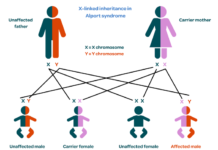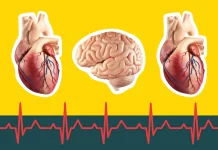Throughout the world, eczema is a chronic skin disorder that affects millions of individuals. It also goes by the name of atopic dermatitis and is distinguished by red, itchy, and swollen skin. This illness can be extremely uncomfortable and have a substantial influence on a person’s quality of life. We’ll talk about eczema’s causes, symptoms, diagnosis, and available treatments in this blog post.
What causes eczema?
Eczema’s specific cause is unknown, but scientists think genetic and environmental factors are likely involved. This disorder is more common in people with a family history of eczema, asthma, or hay fever. In addition, contact with irritants such detergents, soaps, and cleaning supplies can cause eczema. In addition to stress and dry skin, eczema can also be brought on by climatic changes and humidity and temperature fluctuations.
Eczema symptoms include
Depending on how severe the problem is, eczema symptoms might vary. Typical signs include:
- Itchy, red, and inflamed skin
- Dry, scaly, or thickened skin
- Cracked, painful skin
- Small bumps that may leak fluid
- Darkened or discolored skin
Eczema typically appears on the face, hands, feet, and the insides of the elbows and knees. However, it can also affect other parts of the body.
Diagnosis of Eczema:
It is crucial to contact a dermatologist for a correct diagnosis if you think you have eczema. In addition to asking about your symptoms and medical background, your doctor will inspect your skin. In order to rule out other illnesses that can manifest similarly, they might also take a skin sample.
Eczema Treatment Options:
Eczema does not have a known cause or treatment, although there are several ways to control its symptoms. The purpose of treatment is to lessen discomfort, irritation, and inflammation.
The most widely recommended treatments for eczema are topical corticosteroids. They function by lessening itchiness and irritation. They come in various strengths, and your doctor will recommend the right one for you.
1- Moisturisers: People with eczema must keep their skin moisturised. Moisturisers can lessen scaling and irritation and help avoid dryness.
2- Topical Calcineurin Inhibitors: For those who cannot tolerate or do not respond to topical corticosteroids, these drugs minimise inflammation and itching.
3- Antihistamines: These drugs can lessen the severity of symptoms and aid to ease itching.
4- Light therapy: To relieve inflammation and itching, the skin is exposed to UV light.
5- Immunosuppressants: Used for severe cases of eczema that don’t respond to other therapies, these drugs lower immune system activity.
In addition to these available treatments, avoiding factors that aggravate eczema symptoms is crucial. This includes irritants like detergents and soaps, as well as stress and very cold or very hot conditions.
Conclusion:
Eczema is a persistent skin condition that can be difficult to control. However, with the right care and lifestyle adjustments, symptoms can be lessened and quality of life can be increased. It’s crucial to visit a dermatologist for a clear diagnosis and treatment plan if you think you may have eczema.




































